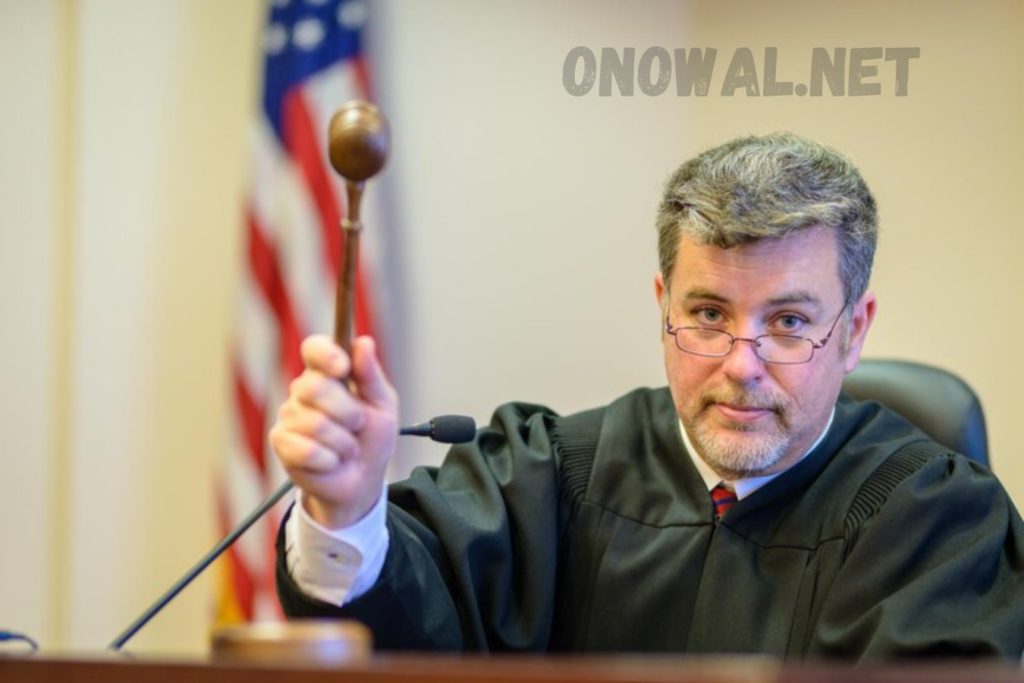Introduction
In a landmark decision, a federal judge has blocked Ohio’s new election law, halting what some say were restrictive voting measures. This ruling has sparked national debate, raising questions about voter rights, election security, and democracy in the United States.
Supporters of the ruling believe it protects voters from unnecessary barriers, while opponents argue that it weakens election integrity. But what does this mean for you?
This article breaks down:
✔️ What the Ohio election law proposed
✔️ Why the judge blocked it
✔️ Who supports and opposes the decision
✔️ How it affects voters and future elections
📜 What Was the Ohio Election Law About?
The blocked Ohio election law introduced new regulations designed to change how residents vote. The law focused on:
🔹 1. Stricter Voter ID Requirements
The law would have tightened voter ID rules, requiring only government-issued photo IDs to vote. Currently, Ohio allows voters to use other forms of identification, such as:
✔️ Utility bills
✔️ Bank statements
✔️ Government documents with an address
🔹 2. Changes to Absentee Voting
Under the blocked law, voters would have faced new deadlines for requesting and returning absentee ballots. Critics argued that this would disproportionately impact senior citizens, disabled voters, and military personnel.
🔹 3. Limited Early Voting
arly voting is a crucial option for many Ohioans, especially those with jobs, childcare responsibilities, or disabilities. The law aimed to reduce the number of early voting days, making it harder for people to vote in advance.E
🔹 4. Restrictions on Ballot Drop Boxes
Ballot drop boxes provide a secure way to submit absentee ballots. The law proposed limiting the number and locations of drop boxes, making it difficult for rural and low-income voters to access them.
🔹 5. Increased Election Monitoring
Some provisions allowed for more aggressive monitoring of polling places, raising concerns about potential voter intimidation, especially in minority communities.

⚖️ Why Did the Judge Block the Law?
A coalition of voting rights groups filed a lawsuit against the Ohio law, arguing that it violated federal voting rights protections. After reviewing the case, a federal judge issued a ruling that temporarily blocks the law from going into effect.
📌 Key Reasons for the Decision:
🔴 Voter Suppression Concerns – The judge found that the law would make it more difficult for thousands of Ohioans to vote, especially minorities, seniors, and people with disabilities.
🔴 Violation of Federal Law – Certain provisions conflicted with the Voting Rights Act of 1965, which protects against discriminatory voting laws.
🔴 Lack of Justification – The state failed to provide evidence that the law was necessary to prevent election fraud, which remains extremely rare in Ohio.
🔴 Potential for Disenfranchisement – The restrictions would disproportionately impact low-income and rural voters, making it harder for them to participate in elections.
This ruling means that Ohio’s current voting laws will remain in place unless a higher court overturns the decision.
Reactions: Supporters vs. Opponents
🙌 Supporters of the Judge’s Decision
Voting rights advocates celebrated the ruling, calling it a victory for democracy.
✔️ The ACLU of Ohio stated:
“This ruling ensures that every voter—regardless of race, age, or income—has fair access to the ballot box.”
✔️ The League of Women Voters argued:
“Restrictive voting laws harm democracy. Every eligible voter should have an equal opportunity to participate.”
Many civil rights groups emphasized that minority and elderly voters would have been disproportionately affected by the proposed restrictions.
Opposition from Lawmakers & Election Officials
Republican lawmakers and election security advocates criticized the judge’s ruling, arguing that the blocked law was essential to:
✔️ Prevent voter fraud
✔️ Secure elections
✔️ Maintain public trust in the system
✔️ Ohio’s Secretary of State responded:
“Election security should be a top priority. Without strong protections, our voting system is vulnerable.”
Some officials also accused the judge of interfering with state laws, saying the ruling overstepped judicial authority.
How This Ruling Affects Ohio Voters
With the law temporarily blocked, voting procedures in Ohio will remain the same for now. Here’s what that means for voters:
✅ You Can Still Use Various Forms of ID – No strict voter ID requirements are in place.
✅ Absentee Ballot Deadlines Stay the Same – You won’t face new restrictions when voting by mail.
✅ Early Voting Schedules Remain Intact – You can still vote early as before.
✅ Ballot Drop Boxes Are Unchanged – Locations and availability remain the same.
For many Ohioans, this ruling protects existing voting rights and access.

What’s Next? Will There Be an Appeal?
Ohio’s government has signaled plans to appeal the ruling. If they proceed, the case could move to:
⚖️ The U.S. Court of Appeals
⚖️ The Supreme Court of the United States
Possible Outcomes:
✔️ If the appeal succeeds: The law may be reinstated, changing voting rules in Ohio.
✔️ If the appeal fails: The law remains blocked, and voting procedures remain unchanged.
Legal experts predict a lengthy legal battle, with potential implications for future election laws across the country.
🌎 Similar Cases in Other States
Ohio is not alone in facing legal battles over election laws. Other states with recent court rulings include:
📍 Georgia – A controversial voting law was upheld, despite opposition.
📍 Texas – A federal court blocked parts of a restrictive election law.
📍 Arizona – A court struck down limits on mail-in ballots and drop boxes.
These cases highlight the ongoing national debate over voting rights and election security.
📢 What Can You Do? Stay Engaged & Vote!
If you’re an Ohio voter, here’s how to stay informed and protect your rights:
✔️ Check Your Voter Registration – Visit nass.org/can-I-vote to verify your status.
✔️ Learn About Your Voting Options – Be aware of absentee, early, and in-person voting methods.
✔️ Support Organizations Fighting for Voting Rights – Groups like the ACLU and League of Women Voters advocate for fair elections.
✔️ Contact Your Representatives – Let them know where you stand on voting rights laws.
Conclusion
The decision to block Ohio’s election law is a major moment in the national fight over voter rights vs. election security.
✔️ Supporters argue it protects voter access and democracy.
✔️ Opponents claim it weakens election integrity.
With potential appeals ahead, this case could shape the future of voting laws in Ohio and beyond.
💡 What do you think? Should Ohio’s election law have been blocked? Share your thoughts in the comments below!
FAQs
1. What did the Ohio election law propose?
The blocked Ohio election law aimed to tighten voter ID rules, limit absentee voting, reduce early voting days, and restrict ballot drop boxes. It also introduced stricter election monitoring measures.
2. Why did the judge block Ohio’s election law?
A federal judge ruled that the law violated federal voting rights protections and could disenfranchise thousands of voters, particularly minorities, seniors, and people with disabilities.
3. Does this ruling mean voting laws in Ohio will change?
No. Because the judge blocked the law, Ohio’s current election rules will remain in place until further legal decisions are made.
4. Who supports the judge’s ruling?
Voting rights groups like the ACLU, NAACP, and League of Women Voters support the decision, arguing it protects voter access and democracy.
5. Who opposes the judge’s ruling?
Ohio Republican lawmakers and election security advocates oppose the ruling, stating that stricter laws are needed to prevent voter fraud and ensure fair elections.

6. Will Ohio lawmakers appeal the judge’s decision?
Yes. Ohio’s government has indicated they may appeal the ruling, meaning the case could go to a higher court for review.
7. Could this case reach the U.S. Supreme Court?
Possibly. If Ohio appeals and the case escalates through the legal system, the Supreme Court could decide on the law’s fate.
8. How does this ruling affect Ohio voters?
Since the law was blocked, Ohio voters can:
✅ Use current voter ID options (e.g., utility bills, bank statements)
✅ Follow the same absentee ballot deadlines
✅ Access early voting as before
✅ Use ballot drop boxes at existing locations
9. How does this compare to voting laws in other states?
Ohio’s blocked law is similar to voting restrictions passed in states like Georgia, Texas, and Arizona. Courts have upheld or struck down similar laws depending on legal challenges.
10. What can Ohio voters do to stay informed?
Ohio voters should:
✔️ Check voter registration at nass.org/can-I-vote
✔️ Know their voting options (early voting, absentee ballots, election day)
✔️ Follow updates on legal appeals
✔️ Support voting rights groups or contact representatives



